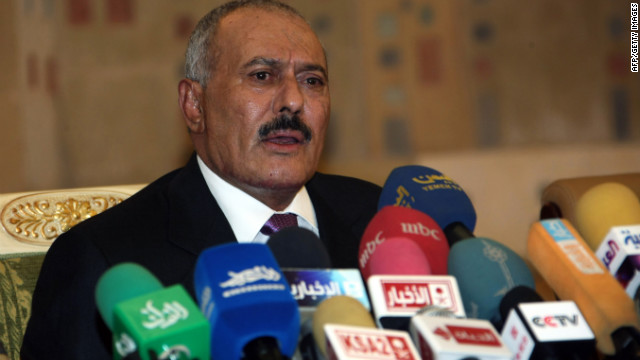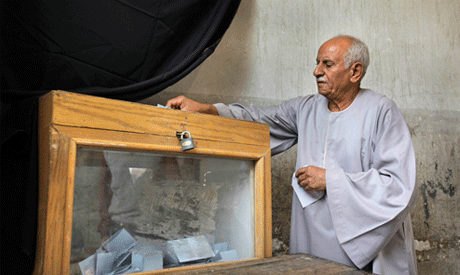By Adom M. Cooper
Impunity Watch Reporter, Middle East
DAMASCUS, Syria–In the latest development coming out of Syria, the country has condemned a new Arab League initiative that calls on President Bashar al-Assad to relinquish his power by holding early elections and forming a “national unity government.” After a meeting of the 22-member body in Cairo, Qatar’s prime minister, Sheikh Hamad bi Jassim Al Thani, stated that the group came to a consensus on the political initiative that would hopefully result in the “peaceful departure of the Syrian regime.”

“After the establishment of the government of national unity, the Arab League will call on the international community to support this national unity government to fulfill its functions. We are looking into an Arab solution for this. We are not looking for a military intervention.”
The Arab League called for the government to begin a dialogue with the opposition within two weeks and for the new government to be formed within two months. The unity government should, within three months, prepare to elect a council that will write a new constitution and prepare for parliamentary and presidential elections.
The Syrian state television released the following statement from a government official, claiming that the resolution was part of a conspiracy against the Syrian people.
“Syria rejects the decisions taken which are outside an Arab working plan, and considers them an attack on its national sovereignty and a flagrant interference in internal affairs.”
In addition to a call for national unity, Al Thani announced that the Arab League’s observer mission in Syria would be extended for another month and the observers would be given additional equipment after Genera Mohammed Ahmed Mustafa al-Dabi of Sudan, the head of the monitoring mission, desired for his mandate to be bolstered.
On Sunday 22 January 2012, Saudi Arabi announced that it was pulling out of the Arab League’s 165-monitor mission in Syria because Damascus had broken several promises on peace initiatives. The decision to extend the mission for a month has been heavily criticized by several analysts and the Saudi decision to leave has cast the mission long-term future into serious doubt. Saudi Arabia is one of the key funders of the league’s projects.
Al-Jazeera correspondent Mike Hanna, reporting from Cairo at the headquarters of the Arab League, shared these words about the situation.
“We understand that al-Dabi has said to the Syrian committees that the mission has not gained enough momentum yet to get a full judgment on it. He said that he needed more time with the added monitors that he’s received in recent weeks and the added geographical places in which the monitoring mission is now extended to see if this mission can in fact work.”
The Syrian Revolution General Commission (SRGC), an anti-regime activist group, claimed on Sunday 22 January 2012, that at least 840 Syrians have been killed since 23 December 2011, the date that the Arab League observers entered Syria. The SRGC also stated that the Arab League has failed to limit the bloodshed or successfully implement the Arab League Peace Plan.
While the Arab League continues to deliberate on how to deal with al-Assad’s regime, the violence did not wish to take a hiatus and deliberate as well. Activists reported that on Sunday 22 January 2012 battles between government troops and army defectors in Douma, a suburb of Damascus. Syria’s Local Coordination Committees reported that at least five individuals were killed.
Arab League Secretary-General Nabil el-Araby stated that the Syrian government has not complied with some parts of an Arab League agreement specifically aimed at ending a violent crackdown on demonstrators and protesters. el-Araby also stated that Syrian officials are treating the crisis as a security problem, noting that armed opposition factions controlling some areas make it increasingly difficult for observers to do their jobs. But he did state that overall, the presence of the monitors has resulted in improvements around the nation.
“The presence of the Arab monitors provided security to opposition parties, which held an increase in number of peaceful protests in areas where the monitors were present.”
But there has been a stark contrast regarding the presence of the Arab League monitors. Burham Ghailoun, head of the opposition Syrian National Council (SNC), stated that the monitors have not seen the full extent of what is going on and thus, cannot adequately address the problems.
“The Arab monitors indicated that the regime did not follow protocol, did not release the detainees, did not remove all military tanks, did not allow press to travel freely, did not recognize even once the peaceful protests, and the massacre of Idlib yesterday is proof of that. The regime let down the Arab League, and Arab nations have the responsibility to respond.”
The UN has reported that more than 5,000 individuals have lost their lives since the anti-regime demonstrations and protests began in March 2011. Syria’s ban on international journalists remains in full effect, continuing to make it difficult to confirm and verify reports that occur around the nation.
If the Arab League wishes to save face and retain any sort of legitimacy, the ban on international journalists needs to be lifted and addressed as it continues to put plans together. The chances of things being hidden from the eyes of Arab League monitors can only decrease with the eyes and ears of experienced international journalists present.
For more information, please see:
Al-Jazeera – Syria Rejects Arab League Transition Plan – 23 January 2012
BBC – Syria Unrest: Arab League Urges Assad To Reform – 23 January 2012
CNN – Arab League Calls For Unity Government In Syria – 23 January 2012
Ahram – Arabs Set To Extend Syria Mission, Rebels ‘Overrun Town’ – 22 January 2012
The Guardian – Saudi Arabia To Withdraw Arab League Monitors From Syria – 22 January 2012
NYT – Arab League Floats Ambitious New Peace Plan For Syria – 22 January 2012
Reuters – Arab League Proposes New Plan For Syria Transition – 22 January 2012


